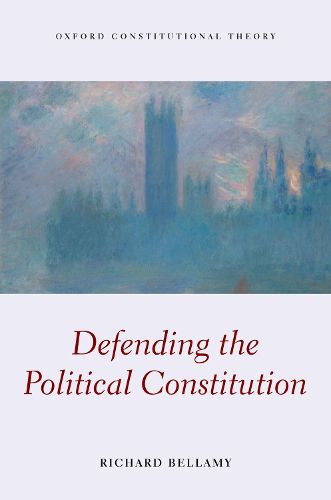Readings Newsletter
Become a Readings Member to make your shopping experience even easier.
Sign in or sign up for free!
You’re not far away from qualifying for FREE standard shipping within Australia
You’ve qualified for FREE standard shipping within Australia
The cart is loading…






A political constitution is often seen as an idiosyncratic feature of the UK and compared unfavourably with an entrenched legal constitution upheld by a supreme or constitutional court, such as that of the United States. By comparing both systems, Defending the Political Constitution explores the normative and empirical advantages of a political constitution and its democratic mechanisms.
Political constitutionalism faces increasing pressure, both from the spread of legal constitutionalism through domestic bills of rights and international law, and the growing influence of global technocratic regulatory regimes, such as the IMF and the EU. Many see these forces as threats to parliamentary sovereignty and even as catalysts for a populist backlash. This book challenges that view. It argues for a new vision: one where international law and regulation are brought under democratic control, reinforcing rather than undermining political constitutionalism. By linking domestic democratic principles with intergovernmental cooperation, it offers a compelling model for safeguarding democracy.
Insightful and pioneering, Defending the Political Constitution contends a political constitution proves both more legitimate and more effective than a legal constitution.
$9.00 standard shipping within Australia
FREE standard shipping within Australia for orders over $100.00
Express & International shipping calculated at checkout
Stock availability can be subject to change without notice. We recommend calling the shop or contacting our online team to check availability of low stock items. Please see our Shopping Online page for more details.
A political constitution is often seen as an idiosyncratic feature of the UK and compared unfavourably with an entrenched legal constitution upheld by a supreme or constitutional court, such as that of the United States. By comparing both systems, Defending the Political Constitution explores the normative and empirical advantages of a political constitution and its democratic mechanisms.
Political constitutionalism faces increasing pressure, both from the spread of legal constitutionalism through domestic bills of rights and international law, and the growing influence of global technocratic regulatory regimes, such as the IMF and the EU. Many see these forces as threats to parliamentary sovereignty and even as catalysts for a populist backlash. This book challenges that view. It argues for a new vision: one where international law and regulation are brought under democratic control, reinforcing rather than undermining political constitutionalism. By linking domestic democratic principles with intergovernmental cooperation, it offers a compelling model for safeguarding democracy.
Insightful and pioneering, Defending the Political Constitution contends a political constitution proves both more legitimate and more effective than a legal constitution.